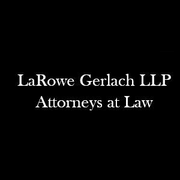Attorney Laura Colt Answers: What Happens to My Online Accounts When I Pass Away?

Although one of the newest areas of Estate Planning and Probate law, currently there is no uniform law on how to handle digital or online assets. These assets can include email accounts, bank accounts, and investment accounts. Also, digital assets include such things as sentimental family videos, family pictures, and digital conversations.
Why is it important for your friends and family to have access to your digital assets? If you are a blogger who has put your thoughts and ideas out into the world and you pass away, there is no one to monitor your work product to prevent someone else coming along and taking your ideas without permission. Similarly, if hackers find out that you are no longer around to monitor your Facebook account, they can break into your account and use it to promote advertisements to your online friends.
How are these assets handled if you don’t take proactive steps now? Currently, each website or social media site has its own policy of how to handle accounts when a person passes away.For example, Facebook will memorialize a person’s “wall” if the company receives notification that the account holder has passed away. This will allow friends and family to leave memorial messages without anyone being able to access the account. Another example is Yahoo’s policy which restricts access to only the original account holder, unless there is an order by the court telling them to hand over information. Finally, E*Trade and Ally banks are online banks that do not have any brick and mortar locations and each has a different policy of how your Personal Representative can recover funds.
What is the best advice if you want your friends and family to have access to your digital assets? First, make sure you specifically address digital assets in your Last Will & Testament making sure it is noted that your Personal Representative has permission to access all of them. Second, leave a list of accounts, usernames and passwords so that your Personal Representative can immediately back up the accounts. Third, make a list of your wishes for each account. If you want your pictures that are stored at Shutterfly.com to be removed from the website, let your Personal Representative know. If you want your YouTube video account closed and the family videos removed, make sure you instruct your Personal Representative accordingly.
There are two scenarios that could happen if you do nothing: One, your digital assets could live on forever, which could put you at risk for identity theft. Or two, the accounts could be shut down unexpectedly which could cause a devastating loss of sentimental memories for your friends and family. As always, check with a qualified estate planning attorney for more details on how to go about protecting your digital assets.
Laura L. Colt, Esq. is an estate planning and bankruptcy attorney with LaRowe Gerlach Taggart LLP in Reedsburg, Wisconsin. To schedule an appointment with her, please call 608-524-8231 and ask for her assistant, Kari. For more information regarding the LaRowe Gerlach Taggart LLP law firm, please visit our website at www.lgtlawfirm.com.
Disclaimer of Liability: This article is provided as a public service by Attorney Laura L. Colt. While the information in this column is about legal issues, it is not legal advice, or legal representation. Because of the rapidly changing nature of the law and our reliance upon outside sources, we make no warranty or guarantee of the accuracy or reliability of information contained herein.
About the Business
Have a question? Ask the experts!
Send your question

